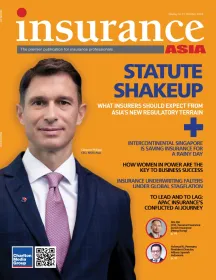
Korean insurers immune from overseas CRE decay: Fitch Ratings
Fitch believes robust capitalisation will enable insurers to absorb shocks from losses.
Korean insurers are positioned to withstand reduced valuations on their overseas commercial real estate (CRE) exposures without significant adverse effects on their credit ratings in the near term, according to Fitch Ratings.
Whilst Korean insurers may face potential impairment losses from their CRE exposure due to factors like higher interest rates and changes in work and consumption patterns post-COVID-19, Fitch expects these losses to have a limited impact on their profitability.
The steady increase in the release of contractual service margins (CSMs) resulting from robust underwriting performance is anticipated to support insurers' profitability despite volatility in investment returns, including potential CRE-related impairment losses.
As of end-September 2023, insurers' overseas CRE exposure stood at KRW31.9t, the highest among Korean financial institutions.
However, this exposure represents a relatively small portion (around 3%) of insurers' total invested assets and about 12% of their total shareholder equity, including CSMs net of tax.
Fitch anticipates that the impact on insurers' solvency ratios and capitalisation will be modest due to the relatively low levels of portfolio exposure compared to their total invested assets.
Even in a scenario of severe deterioration in overseas CRE markets, the overall Korean Insurance Capital Standard (K-ICS) ratio is projected to decline by only mid-single-digit percentage points.
ALSO READ: South Korean insurers adapt to new regulations
However, the exact impact may vary across insurers depending on their risk appetites, investment strategies, and risk management practices.
Whilst high-quality fixed-income securities constitute the majority of insurers' asset portfolios, there has been an increase in the share of risky assets, such as beneficiary certificates, since 2019.
These investments offered higher yields and portfolio diversification but are less liquid than conventional bonds and listed equities.
Most of insurers' overseas CRE exposure is indirect, primarily through alternative investments like beneficiary certificates.
North America accounts for the majority of this exposure, followed by Europe, Asia, and other regions. Office assets constitute a significant portion of CRE exposure, which has seen a decline in post-pandemic value in some countries.
Moreover, a considerable proportion of overseas CRE assets are in mezzanine and sub-tranches, which could be more vulnerable in deteriorating credit conditions.
Despite recognising some CRE-related impairment losses in 2023, Korean insurers' strong capitalisation levels are expected to serve as a buffer against severe CRE downturns.
Fitch believes that their robust capitalisation will enable them to absorb shocks from CRE impairment losses, given the scale of their exposure to CRE.



















 Advertise
Advertise


